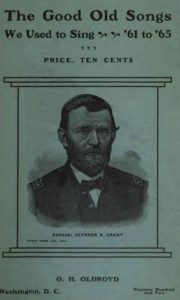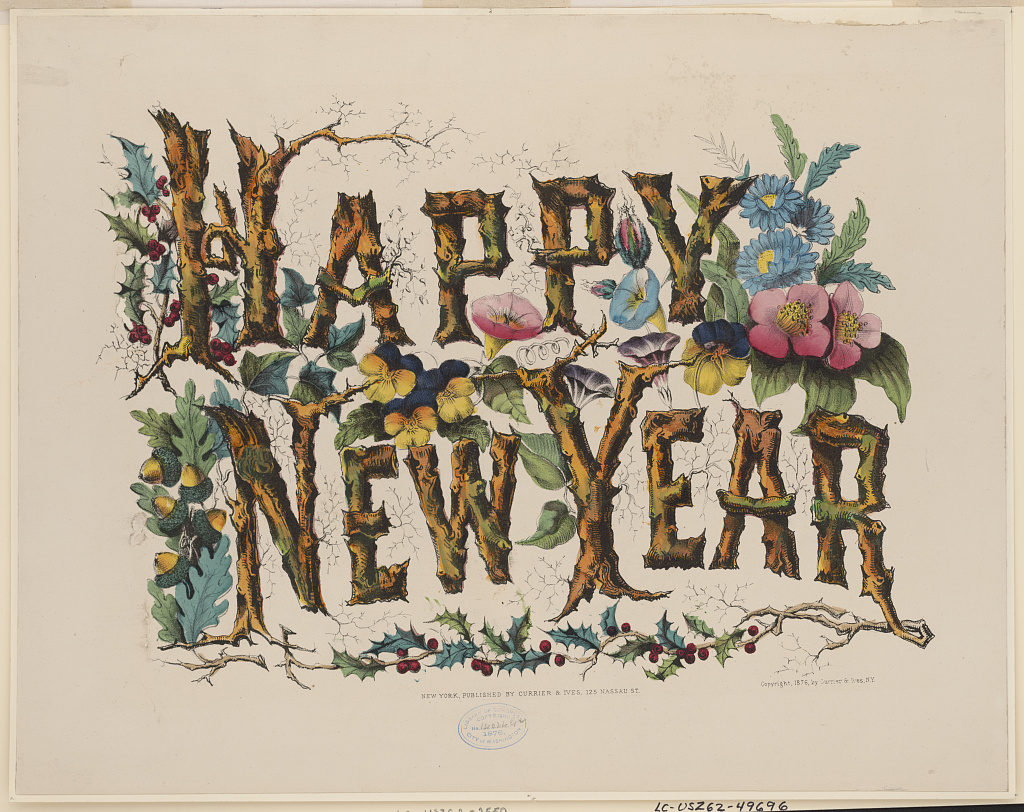Duties evaded in the past press with increasing urgency in the future.
On Christmas Day 1867 an editorial in The New-York Times lamented the terrible condition of the American South: “the Christmas Day of 1867 will be a black day throughout the Southern states.” Apparently things were even worse. A week later the same newspaper found gloom and sadness nationwide. If I had to pick a color to describe it, it might be blue, a real deep, dark, murky blue. In its “Word for the Day” (running to over 900 words) the editorial found some hope for the future. The federal government had to implement better policies, but the paper feared that the upcoming presidential election would only increase partisan “warping” of Congressional legislation. Among the nation’s many problems was an “exhaustive taxation” that crippled and sometimes crushed business. From The New-York Times January 1, 1868:
A Word for the Day.
If the happiness of the New Year depended on the happiness and prosperity of the year from which we have just escaped, we fear that to-day would be comparatively dull in every part of the United States. There is not much ground for exultation in the results we have inherited. Neither politically nor financially, neither commercially nor industrially have the last twelve months afforded solid satisfaction. The progress they have realized is almost hidden by the disasters they have yielded, and the sadness and disappointment derived from their experience.
The one earnest hope which prevailed last New-Year’s Day has not been fulfilled. The Union has not been restored. The country, nominally at peace, suffers from many of the incidents of war. Ten States are still governed by the bayonet; the order which prevails being the “order” which “reigned in Warsaw.” Advances have been made toward the reorganization of local government, but they serve rather to indicate alienation and division than the welding of interests and purposes, which true pacification implies. Time has intensified bitterness, instead of obliterating it, and diffused ill-feeling, instead of forcing it within narrower circles. The law has taken its course, but the Southern whites neither share its responsibilities nor concede the finality of its results. The progress reported is, therefore, partial and unsafe, if not mainly mythical. It tells of little actually accomplished, and indicates a void which only the reckless can contemplate with complacency. The reconstruction from which the white majority withhold both sympathy and aid hardly promises to be complete. Whether it last or not depends upon circumstances yet hidden in the womb of the future. But the fact that what has been done may need to be done over again in another way, should moderate our pride, and qualify our estimate of political success in the past year. Delay in pacification has entailed has entailed disaster on every material interest. The South, desolate and depressed, has shown no sign of the recuperation which must precede national prosperity. Its great staple industry has been ruined. Its impoverished people help but little as producers or consumers. Its resources lie undeveloped, and the prospect of aid from the North, whether in the shape of population or capital, appears as remote as at any period since the war. The South, however, no longer suffers alone. The whole country feels the effects of its difficulties, and shares the embarrassments which adds to the miseries of its people. East and West utter the same complaint. Manufacturing industry is at a stand-still. Enterprise is paralysed by uncertainty. Trade is universally dull. The year’s profits have been small, and the business failures more numerous than at any period other than one of actual panic. The number of unemployed is unusually large, and all the time it is on the increase. The dead year, then, has left few legacies beyond bad debts. Its gains and gifts have been few – its liabilities and losses many and disastrous.The retrospect is further clouded by the record of governmental folly and weakness. Congress and the President have waged a disreputable quarrel. The healing power of reconstruction measures has been impaired by the angry tone of the one and the obstructive policy of the other. Partisan politics have monopolized the Capitol, and starving industry and struggling trade have petitioned in vain for succor. Extravagant expenditures have gone on unchecked. An exhaustive taxation has been kept up until many industries have all but collapsed. The Treasury operations have devoted means wrung from the people to purposes which should be postponed to a more convenient season; and have aggravated the difficulties of commerce by subjecting the currency to dogmas and caprice. The sins of omission which are chargeable against Congress have been followed by sins of commission originating in the Treasury. These, combined, have contributed largely to the deplorable condition in which the New Year finds the material interests of the country.
We enter, then, upon a term freighted with responsibilities of no common kind. Duties evaded in the past press with increasing urgency in the future. The liabilities shirked last year come back now with a large accumulation of interest, so that the race to be run will be clogged with anxieties and conditions which call for more patriotism and statesmanship than have lately been displayed. The unsolved problem of reconstruction, with all its difficulties of race and interest; the plans of internal improvement which are essential to the success of a restored Union; the load of taxation, crippling all industries and crushing some out of existence; the necessities of trade and its demands for wise financial and fiscal legislation; the cutting down of expenditures in every branch of the Government, and their adaptation to the altered circumstances of the country – such are the tasks that devolve upon our law-givers – such the questions that await attention and adjustment in the year which begins to-day.

past … and future?
Its complications will not be lessened by the intrigues and struggles of a Presidential election. The immediate danger is the influence which this event always exercises upon the movements of parties, and the possibility of its warping the policy of Congress on the momentous questions before it. Our hope is that the honest opinion of the Republic will, on this occasion, elevate the Presidential question above the mire of partizanship and determine it on grounds eminently favorable to an improved general prospect. The chances of satisfactory legislation will be increased when Congress realizes the resolve of the people to hold it accountable for neglect or injustice. The grievances now suffered are too real, too wide-spread, too largely the product of bad laws and mal-administration to be borne patiently after the opportunity for redress fairly comes.



![Webster's note and draft calendar for the years 1866, 1867 & 1868. [n. p. c1866]. (1866; LOC: https://www.loc.gov/item/rbpe.0720200a/)](https://www.bluegrayreview.com/wp-content/uploads/2018/01/Leap-Day-1868-300x203.jpg)
![New Year's calls ([New York, N.Y.] : [George Stacy], [between 1861 and 1866]; LOC: https://www.loc.gov/item/2017647818/)](https://www.bluegrayreview.com/wp-content/uploads/2017/12/1s05171v-1024x521.jpg)
